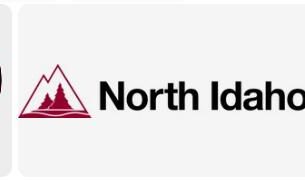Attractions
Outside the capital
Excursions to Panchimalco are recommended. This is where the Pancho Indians live (direct descendants of the Pipil tribe), who have preserved many of their traditions and costumes. Lake Ilopango is set in a magnificent landscape. Other excursion destinations are the volcanoes San Salvador and Izalco (1910 m). One has a magnificent view of San Salvador through the rock arch of Mount Chulul.
The town of Ilobasco is famous for its handicrafts. The Tazumal ruins near the city of Chalchuapa (78 km from San Salvador) are well worth seeing. This ceremonial site was formerly inhabited by the Chorti, Mayan Pokomam and Toltec Pipil. The El-Tazumal pyramid is said to have been built in the 6th century. Equally interesting are the San Andres Ruins.
El Salvador has 320 km of Pacific coast lined with resort villages, beaches, fishing villages and pine forests. The best holiday spots are on the Costa del Sol, which can be easily reached via a freeway.
The holiday area around Lago Coatepeque, a crater lake at the foot of the Santa Ana volcano, is particularly recommended.
Shopping
Overview
At the Mercado Cuartel (handicraft market) you can find many souvenirs, such as towels with Mayan patterns, candle holders, ceramics and pottery. Shop opening times: i. General Mon-Sat 09.00-12.00 and 14.00-18.00.
Nightlife
Introduction
Theaters, dance halls with jukeboxes, and nightclubs that also offer hot food and dancing are primarily concentrated in San Salvador. Membership is required to enter some nightclubs. There are also cocktail bars and cinemas throughout the country, some showing English-language films with subtitles.
Culinary
Overview
In San Salvador there are Chinese, Mexican, Italian and French restaurants. Steakhouses are also common. On the market (one of the largest and cleanest in Latin America) you can buy cheap groceries. The main ingredients are often corn and rice, and chili pepper is a must. Local soups and stews are particularly recommended. The national dish is pupusa (corncakes with beans, meat and cheese), which is also commonly found at street stalls. Drinks: There are all kinds of fruit juices and the local beer is worth a try.
Accommodation
Hotels
Good cheap and expensive hotels are plentiful in the capital San Salvador, advance booking is recommended. Day trips to the surrounding area can be undertaken from here. Corsatur organizes group excursions to places of interest (see addresses). Lago Coatepeque is a popular holiday area with good hotels, restaurants and inns. Categories: Deluxe, 1st class and smaller hotels/guesthouses. For more information, contact the El Salvador Hotel Association, 63 Avenida Sur, Pasaje y Urbanización, Santa Mónica 12-A, Colonia Escalón, San Salvador. (Tel: 22 98 53 83, 22 98 53 84. Internet: http://www.hoteles-elsalvador.com/).
Culture
Religion
Catholics (83%); Protestant minorities.
Social Rules of Conduct
Everyday clothing is common. Photographing: Be careful when choosing a subject. Military installations should not be photographed. Tipping: 10% in hotels and restaurants, 15% on smaller bills. Taxi drivers do not expect a tip unless the taxi is hired for the day. Porters receive 3c per piece of luggage.
Climate
Best travel time
Hot subtropical climate with high daytime temperatures and cool nights. Coastal areas are particularly hot, rainy season May – October. Cooler and more temperate climate at high altitudes.
Country data
Phone prefix
+503
Area (sq km)
21041
Population
6,486,205 (Source: homosociety)
Population density (per square km)
292
Population statistics year
2020
Main emergency number
911


